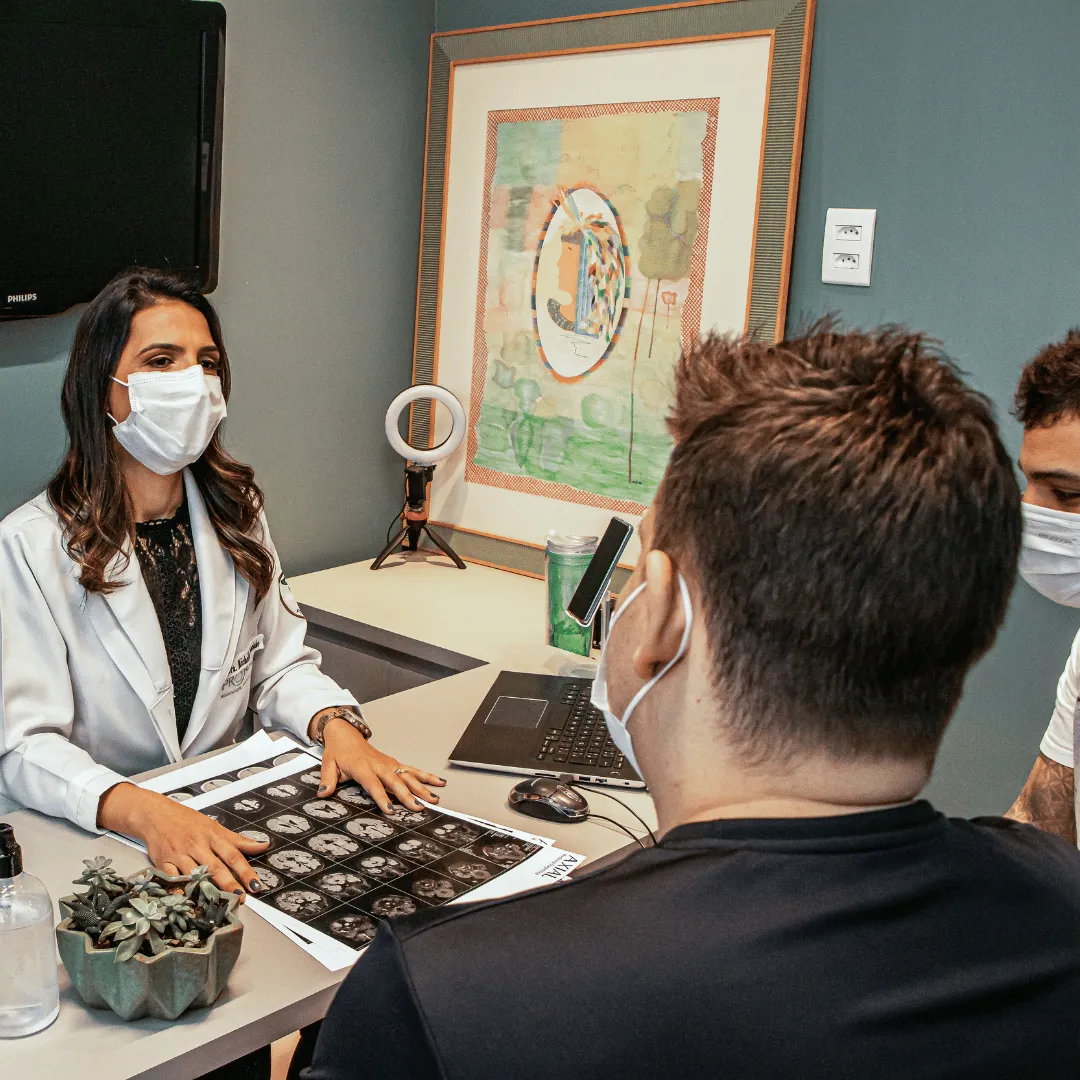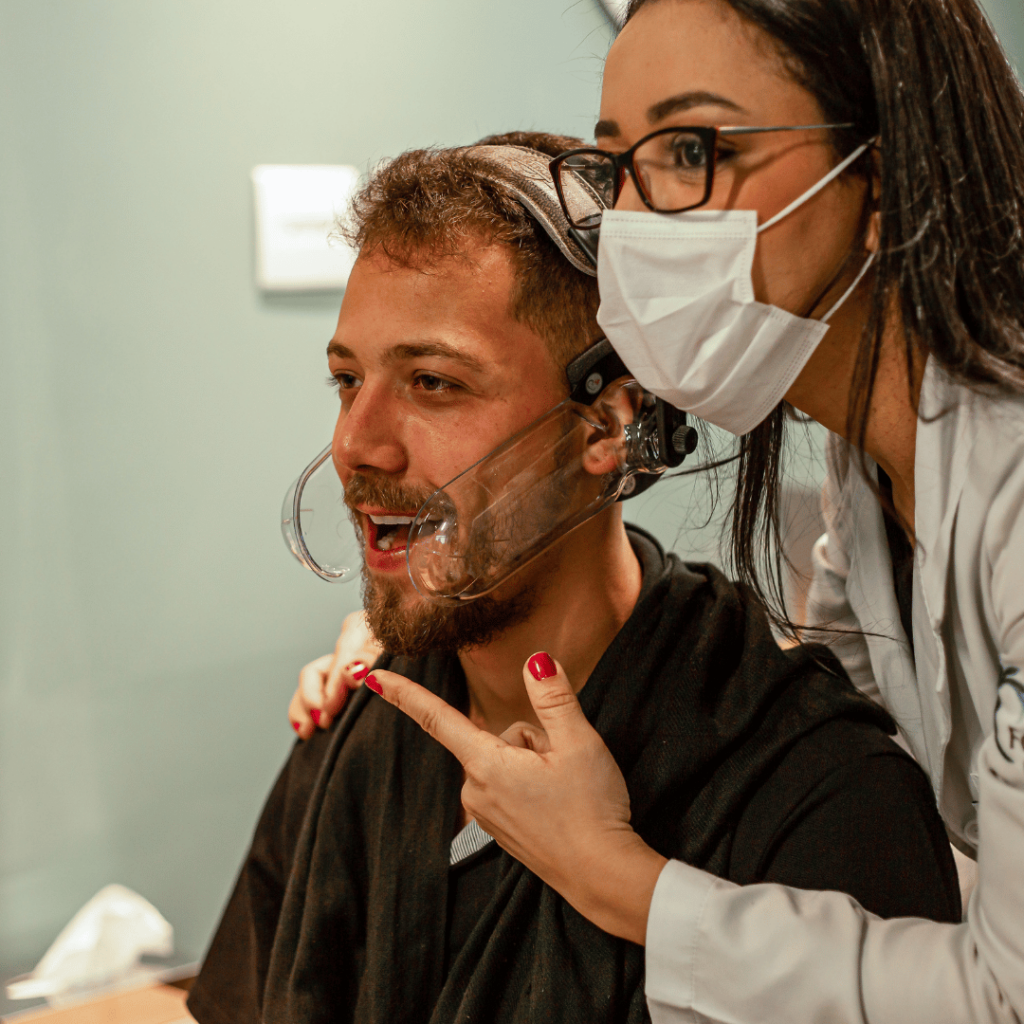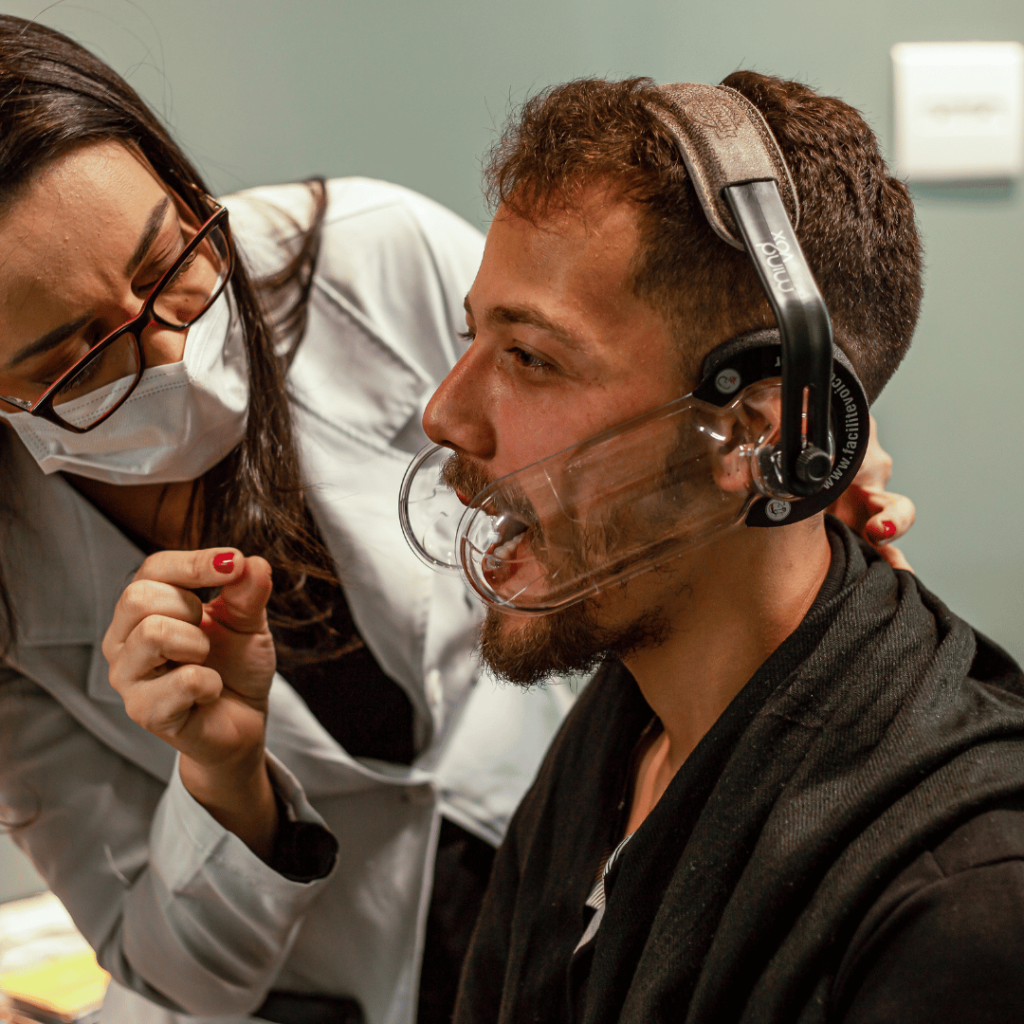REVOLUTIONIZE YOUR STROKE RECOVERY WITH THE PROSENSE METHOD
Understand How a Multidisciplinary Approach Can Significantly Improve Your Quality of Life

What is a Stroke?
A Stroke, also known as a cerebral vascular accident (CVA), occurs when the blood supply to specific regions of the brain is interrupted, leading to neuronal death and consequent brain damage. This interruption can happen due to a rupture and leakage of blood in the brain (Hemorrhagic Stroke) or by the obstruction of blood vessels, with the most common causes being related to clots or thrombi (Ischemic Stroke).
PERSONALIZED MULTIDISCIPLINARY REHABILITATION
You Are About to Discover the Most Powerful Intensive Neurological Rehabilitation Treatment Ever Developed for Your Recovery and the Return of Lost Functions
All the information you need to maximize skills and abilities, improve your capacity, and accelerate your recovery!
First, let me share a reassuring piece of news: the injury you suffered occurred at a revolutionary time in medical history. Today, we know much more than the previous generation about how to rehabilitate an affected brain.
Each patient has specific goals, and after a thorough assessment, we begin our intensive neurological physiotherapy work, setting short, medium, and long-term goals. Our team is trained to use the most modern techniques with proven efficacy to assist you in the recovery process.
You Can Rely on the Following Services from Our Team:
Occupational Therapy Evaluation
Individual Occupational Therapy Sessions
Upper Limb Rehabilitation
Environmental Adaptation
Assessment, Prescription, and Fabrication of Orthoses
Prescription of Assistive Technology Devices
Home Visits
Cognitive Rehabilitation Program
HOW CAN SPEECH THERAPY HELP?

DYSPHAGIA
Dysphagia is a term used to describe swallowing difficulties. For example, signs of dysphagia include difficulty swallowing, keeping food and saliva in the mouth, coughing and choking during meals, as well as the sensation of food being stuck in the throat.
There is a direct relationship between nutrition, health, and the physical and mental well-being of an individual. Research confirms that good nutrition plays a fundamental role in the prevention and treatment of diseases and is essential for sustaining life. Changes that hinder eating require treatment as quickly as possible, and the professional qualified for the diagnosis and treatment of dysphagia is the speech-language pathologist.
At Prosense, we will conduct swallowing rehabilitation through specialized and personalized care, analyzing the need for dietary adaptations, introducing muscle exercises, or training maneuvers to restore or adapt the swallowing dynamics. Guidance on how to eat safely, effectively, and correctly will be provided to the patient and family, preventing the development of aspiration pneumonia due to the entry of food and saliva into the lungs.

APHASIA
Are you experiencing language alterations? Have you found it difficult to express yourself orally or in writing? Is your understanding of what you say compromised? Has your communication been impacted due to neurological injury or other reasons? If your answers are affirmative, it is crucial to begin speech therapy. Studies consistently show that early initiation of language stimulation significantly contributes to therapeutic success.
As a professional, the speech-language pathologist plays a fundamental role by proposing treatments through exercises and therapies. The goal is to provide quality of life to the patient by ensuring understandable and effective communication. These interventions contribute to restoring communicative abilities, significantly improving individuals’ social interactions.
At Prosense, treatment is personalized for each case, involving language stimulation. To overcome the losses caused by the injury, we utilize auditory and visual stimulation methods, focusing on facilitation and motivation. Linguistic modalities are worked on by considering each individual’s preserved capabilities.
HOW CAN OCCUPATIONAL THERAPY HELP?
The Importance of Occupational Therapy in Stroke Rehabilitation
A patient’s independence can be drastically impaired, leading to significant frustration for both the patient and their family. We understand this well. The ability to follow a daily routine, fulfill social roles, and engage in self-care and leisure activities are crucial for personal satisfaction.
Occupational Therapy becomes essential in the rehabilitation process as its goal is to restore and stimulate maximum independence and autonomy in daily living activities, rehabilitating the physical and social functions of individuals who have suffered a stroke.
MOTOR REHABILITATION
The Occupational Therapist aims to restore the performance of significant occupational activities, from basic daily living activities (personal care, bathing, dressing, eating) and instrumental activities of daily living (household tasks, computer use, financial management, telephone use) to work, leisure, community participation, and more. The therapist optimizes the client’s skills and abilities, promoting maximum independence and autonomy in daily activities while restoring the individual’s role within society.
The treatment is based on various approaches, including motor and cognitive rehabilitation, assessment, the prescription and custom fabrication of orthoses for the upper limbs; environmental modification and/or adaptation to enhance accessibility; the evaluation and fabrication (using 3D printing) of personalized assistive technology devices to improve the individual’s functional capabilities; and training in daily living activities to reintegrate the individual into everyday life.
TECHNOLOGIES AND INNOVATIONS
At Prosense Clinic, we share your concern for health and well-being, and we are committed to providing innovative treatments that truly make a difference. We believe that combining advanced technologies with traditional therapies can transform treatment effectiveness. This integration enables more personalized and effective approaches, meeting each patient’s specific needs and enhancing outcomes.
Non-Invasive Neuromodulation
Through Transcranial Magnetic Stimulation (TMS) and Transcranial Direct Current Stimulation (tDCS), we are revolutionizing the treatment of neurological conditions. These techniques target specific brain areas, promoting significant improvements in disorders such as depression, anxiety, chronic pain, and other neurological conditions.
Virtual Reality (VR)
Virtual Reality is a powerful tool that creates immersive and interactive environments. We use VR to aid in the motor and cognitive development of patients, making treatment more engaging and effective. This encourages active participation from patients and promotes faster and more lasting results.
Botulinum Toxin
We use botulinum toxin to reduce muscle spasticity in patients with neurological conditions such as cerebral palsy, multiple sclerosis, and dystonia. This treatment improves mobility and quality of life, allowing patients to perform daily activities more easily.
Other Advanced Technologies
In addition to the mentioned technologies, we have various other equipment that you can check by clicking here.
Our goal is to offer the most modern and effective treatments to our patients, ensuring they have the best chance to reach their full potential.
